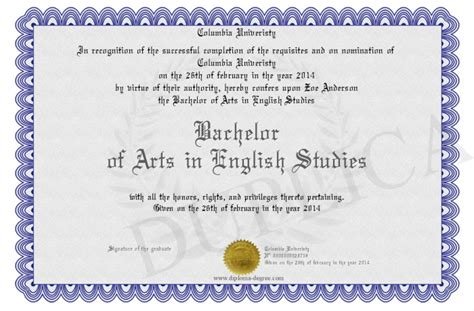Bachelor of Arts in English: What is it, and what can it do for you? In today's world, a bachelor's degree can open doors to a wide range of career options, but what sets an English degree apart? It provides a deep understanding of literature, language, and culture, equipping you with critical thinking, analytical, and communication skills that are highly sought after in various fields.
What is a Bachelor of Arts in English?
A Bachelor of Arts in English is an undergraduate degree that focuses on the study of English literature, language, and linguistics. It provides students with a comprehensive understanding of the English language and its role in culture and society.
English majors develop critical thinking, analytical, and communication skills that are highly valued in various fields. They gain a deep appreciation for literature, the ability to analyze and interpret texts, and the capacity to communicate effectively in both written and oral forms.
Exploring the English Language
The English language is a complex and dynamic system that has evolved over centuries. English majors delve into the history, structure, and usage of the language, gaining a profound understanding of its grammar, vocabulary, and pronunciation.
They study the evolution of English from its Old English roots to its present-day form, examining the influences of various languages and cultures on its development. This knowledge provides insights into the intricacies of the language and its role in shaping human communication.

Appreciating Literature's Power
Literature is a mirror to society, reflecting human experiences, emotions, and aspirations. English majors engage with a diverse range of literary works, from classic novels to contemporary poetry, exploring the power of language to create worlds and convey profound ideas.
They develop analytical skills to dissect literary texts, uncovering hidden meanings, themes, and symbols. They learn to appreciate the nuances of language, the beauty of imagery, and the transformative power of storytelling.
English in the Modern World: Career Options
English graduates possess a versatile skill set that opens doors to various career paths. They are highly sought after in fields that require strong communication, critical thinking, and analytical abilities.
Common career options include teaching, journalism, publishing, public relations, marketing, law, and academia. English majors also find success in fields such as technical writing, user experience design, and digital content creation.
Education: Shaping Young Minds
English graduates are well-equipped to become educators, inspiring future generations of learners. They develop the skills to create engaging lesson plans, foster critical thinking, and nurture a love of literature and language in their students.
They play a vital role in shaping young minds, instilling in them the importance of communication, analysis, and imagination. English teachers create a foundation for lifelong learning and contribute to the intellectual growth of their communities.
Journalism: Uncovering the Truth
English majors possess the critical thinking and communication skills essential for a career in journalism. They learn to research, analyze, and report on current events, uncovering the truth and informing the public.
They develop a strong ethical compass and a commitment to accuracy and fairness. English majors are well-positioned to become investigative journalists, news reporters, editors, and media critics.
The Skills You'll Gain with an English Degree
An English degree equips graduates with a comprehensive set of skills that are highly valued in the workplace and beyond.
These include critical thinking, analytical abilities, strong communication skills, and cultural literacy. English majors are also adept at research, problem-solving, and teamwork.
Critical Thinking and Analysis
English majors develop a sharp critical eye and the ability to analyze complex texts and ideas. They learn to identify arguments, evaluate evidence, and form well-reasoned conclusions.
These skills are essential for success in any field, from law to business to academia. English graduates are able to think critically, make informed decisions, and solve problems effectively.
Effective Communication
English majors are masters of communication. They develop strong written and oral communication skills, enabling them to convey their ideas clearly and persuasively.
They learn to write with clarity, precision, and style, whether crafting emails, reports, or creative works. Their ability to communicate effectively is a valuable asset in any profession.
The Core Curriculum of an English Degree
The core curriculum of an English degree provides a solid foundation in literature, language, and linguistics.
Students take courses in literary analysis, poetry, drama, fiction, and creative writing. They also study the history of the English language, its grammar, and its role in society.
Literary Analysis: Uncovering Meaning
Literary analysis is at the heart of an English degree. Students learn to dissect literary texts, uncovering their themes, symbols, and hidden meanings.
They develop the ability to interpret and evaluate literature, forming their own informed opinions and engaging in critical discussions. Literary analysis skills are essential for understanding and appreciating the power of literature.
Historical Linguistics: Tracing Language's Evolution
Historical linguistics explores the evolution of languages over time. English majors study the history of the English language, from its Indo-European roots to its present-day form.
They learn about sound changes, grammatical shifts, and the influence of other languages on English. This knowledge provides a deeper understanding of the complexity and richness of the English language.
Literature, Language, and Linguistics: Exploring English's Nuances
English majors delve into the nuances of literature, language, and linguistics, gaining a deep understanding of their interconnectedness.
They explore the relationship between language and thought, the power of rhetoric, and the role of literature in shaping culture and society.
Rhetoric: The Art of Persuasion
Rhetoric is the art of persuasive communication. English majors study the principles of rhetoric, learning to craft arguments, analyze public speeches, and understand the power of language to influence and persuade.
These skills are valuable in a wide range of fields, from politics to marketing to law. English graduates are able to communicate their ideas effectively and persuasively, making them influential voices in society.
Sociolinguistics: Language in Society
Sociolinguistics examines the relationship between language and society. English majors explore how language varies across social groups, cultures, and contexts.
They study the impact of social factors on language use, the role of language in shaping social identities, and the implications for education, communication, and social justice.
Creative Writing and Storytelling: Unleashing Your Imagination
English majors have the opportunity to unleash their creativity through coursework in creative writing. They develop their skills in writing fiction, poetry, and drama.
They learn to craft compelling narratives, develop complex characters, and use language to evoke emotion and imagination. Creative writing encourages self-expression, fosters creativity, and provides a platform for students to explore their unique voices.
Fiction Writing: Crafting Captivating Tales
Fiction writing courses provide a structured environment for students to develop their storytelling abilities. They learn the techniques of plot development, characterization, and world-building.
Through workshops and critiques, they hone their craft, receiving feedback and support from peers and instructors. Fiction writing allows students to explore their creativity, tap into their imaginations, and create immersive worlds of their own.
Poetry: Exploring Language's Lyrical Potential
Poetry courses introduce students to the art of poetry, exploring its forms, styles, and techniques. They learn to analyze and appreciate poetry, as well as to write their own original verse.
Through close reading and experimentation, they discover the power of language to evoke emotion, create imagery, and convey profound ideas. Poetry writing fosters self-expression, encourages creativity, and allows students to explore the lyrical potential of language.
Literary Analysis and Criticism: Deconstructing the Written Word
Literary analysis and criticism form a central pillar of an English degree. Students learn to dissect and interpret literary texts, uncovering their meanings, themes, and significance.
They engage in close reading, textual analysis, and critical discussion, developing their analytical abilities and their understanding of literature's complexities.
Textual Analysis: Uncovering Hidden Meanings
Textual analysis is the close examination of a literary text to uncover its hidden meanings and structures. English majors learn to identify literary devices, analyze narrative techniques, and interpret symbolism.
Through careful observation and interpretation, they develop a deep understanding of how texts are constructed and the ways in which they convey their messages. Textual analysis enhances critical thinking skills and fosters a nuanced appreciation for literature.
Literary Criticism: Exploring Diverse Perspectives
Literary criticism provides a framework for analyzing and evaluating literature from various theoretical and critical perspectives. English majors engage with different critical approaches, such as formalism, structuralism, feminism, and postcolonialism.
They learn to apply critical theories to literary texts, developing their own informed interpretations and contributing to the ongoing dialogue about literature's significance and impact.
Cultural Studies and Global Perspectives: Understanding the World Through Literature
English majors delve into cultural studies and global perspectives, exploring the ways in which literature reflects and shapes different cultures and societies around the world.
They examine the influence of cultural contexts on literary works and consider the role of literature in promoting cross-cultural understanding and global citizenship.



